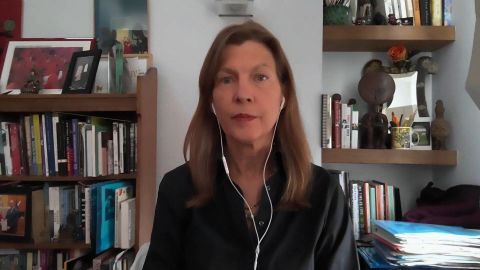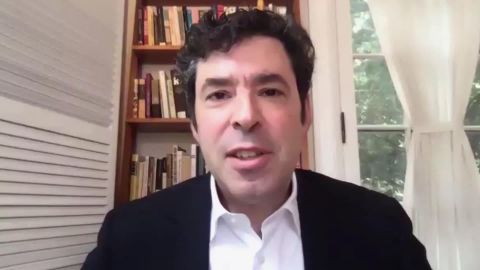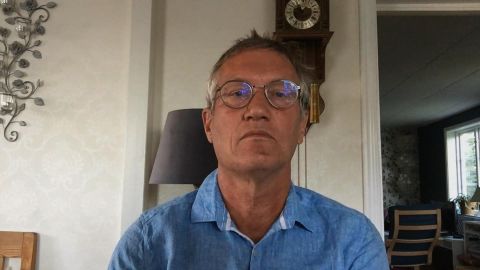Read Transcript EXPAND
ANDERS TEGNELL, SWEDEN’S CHIEF EPIDEMIOLOGIST: Yes. I think that we still believe that this strategy has served us very well in many different aspects. I know that the death toll is very high. It’s not extremely high if you compare us to countries like Belgium, Midlands or the U.K., which are countries which in many ways have a much more similar epidemic than our neighboring and (INAUDIBLE) which are quite different in many ways when it comes to the epidemic.
CHRISTIANE AMANPOUR: Well, we do have those comparisons. So, you’re right, that you are somewhere, you know, on the continuum under those countries, but above certain other countries. The fact of the matter is, though, I guess you could have done something different, couldn’t you, to avoid that number of deaths? Because while you point out the difference in these countries, compared to your immediate neighbors, who took a completely different approach, your death toll is massively higher. Theirs is in the low 100s at best.
TEGNELL: Yes, but then you also need to realize that those countries are different — they have a different kind of population structure. And their big cities is nowhere the size of Stockholm. Even Stockholm is nowhere the size of (INAUDIBLE). So, I think a more fairer comparison is really within (INAUDIBLE) like that. But even so, I mean, there is really no proof that the lockdown would have saved the people in the long-term care facilities in Sweden. We can see, when we saw the problems for the long-term care facilities, we gave a lot of advice, a lot of other agencies getting a lot of advice. The number of cases in our long-term facilities fell very, very quickly. And we now have almost no cases in our long-term care facilities anymore, which shows that it is quite possible. We (INAUDIBLE) still to protect the long-term care facilities and people living there.
AMANPOUR: OK. But you know what? That’s interesting, because you did also say, when those terrible numbers out of the — I mean, 50 percent of the deaths, if I’m not wrong, came from elderly care facilities. And you did say that certain things could have been handled better. Was that clearly one of the things that could be handled better?
TEGNELL: Yes. I think that we really need — and I’m sure we will, when this is all over and already now, we are doing a lot in that area, think about the quality of care in our long-term care facilities, seeing how that care, the security of these people can be improved, because we have shown already that the security can be improved vastly already just by falling back and following the guidelines that were already in place.
About This Episode EXPAND
Christiane speaks with former diplomat Wendy Sherman about the global democratic order. She also speaks with Sweden’s chief epidemiologist about COVID-19 and Heidi Larson, director of the Vaccine Confidence Project, about how those who are anti-vaccine could impact the coronavirus battle. Hari Sreenivasan speaks with philosophy professor Jason Stanley about what fascist regimes have in common.
LEARN MORE



